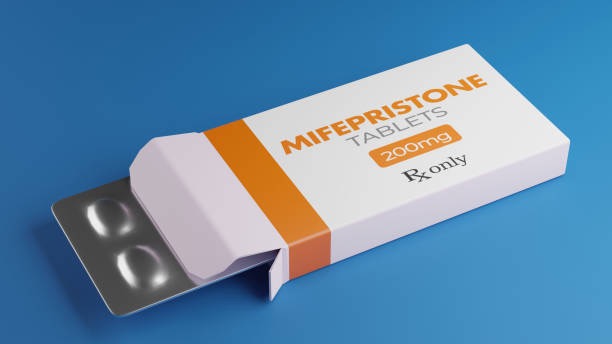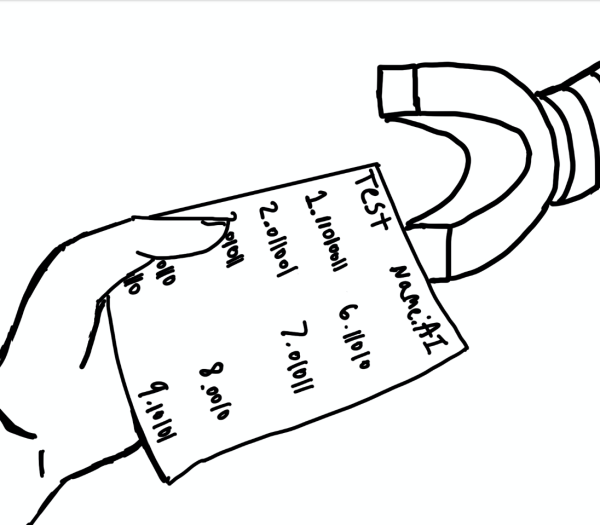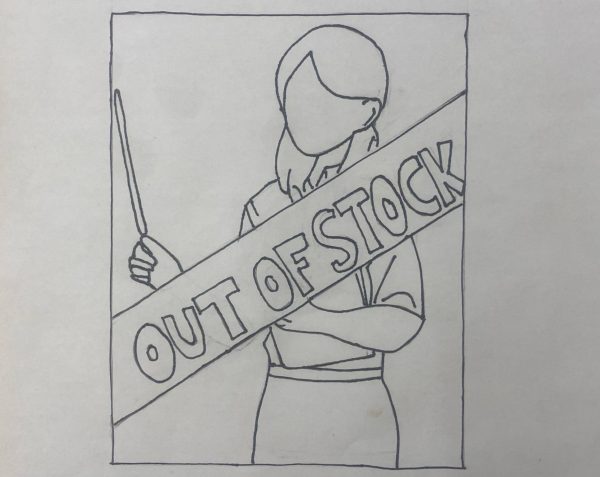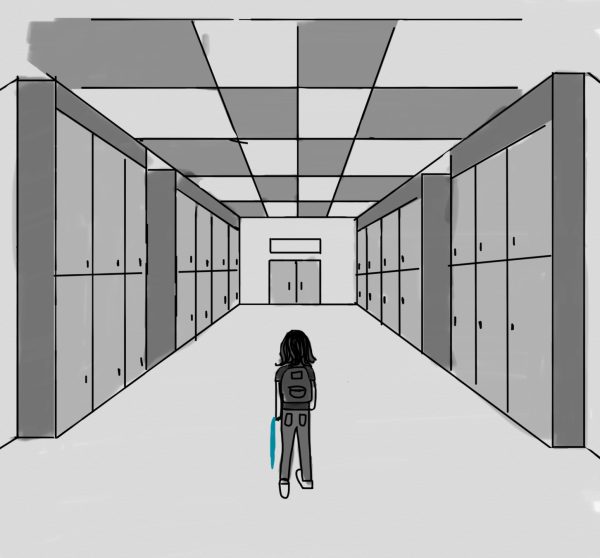Teacher seeks the answer to the question of ‘why’ with new minor at Dominican
June 4, 2019
Advanced Algebra and AP Research teacher Ernesto Diaz relates everything he accomplishes back to the question of “Why?” He credits his philosophical attitude for inspiring him to fulfill his most recent accomplishment: creating a new minor at Dominican University. For the past year, Diaz, a valued faculty member at both Redwood High School and Dominican, has been working with a team of Dominican faculty to create the minor titled “Computer Science and Applications” which is an introductory course to computer science and the ethics of technology usage. However, if it weren’t for his abstract outlook on life, Diaz may have never completed this endeavor.

“Only when you have a reason why you are choosing something is when you feel that things match, that things are coherent, that things are an extension of yourself. So the question of ‘Why?’ is at the beginning and the end of almost everything that I do,” Diaz said.
Technology expert, math teacher, martial arts enthusiast, aspiring chef and dad of two, Diaz is now able to call himself an influential figure in the development of collegiate technology education as well. However, this is not just another check on a long list of accomplishments for Diaz. Answering “Why?” has lead Diaz through an exciting career, including various teaching jobs and working for AT&T in designing one of the first cell phones. Diaz credits his background in mathematics and engineering, as well as his philosophical interests, to opening up the opportunity to create a minor at Dominican.
“Perhaps because of my background in technology and the fact that I was looking for links into the philosophical roots of the scientific revolutions and how they affect human beings, I was recruited by the heads of the university along with a small set of faculty to develop what we call a minor… on computer science,” Diaz said.
Diaz and several other Dominican professors partnered with the Make School in San Francisco to develop the minor. Although currently in its early stages, the team plans on expanding the minor to encompass several disciplines, not only focusing on building technological skills, but also teaching the ethics of technology use. According to team member and computational chemist Randall Hall, the unique design of the minor will allow students to gain skills useful in almost any career.
“[Students] gain perspectives into areas they would not have otherwise gotten. I usually refer to this as cross-training, taking an idea from athletics, where you don’t just train in one skill, you train in multiple skills. And the more skills you’re trained in, the more marketable you are, the more flexible you are as you go forward in the job market,” Hall said.
President of Dominican University, Mary Marcy, also believes that subjects taught in the minor partially created by Diaz, such as the basics of technology, coding and ethics, are an essential component of any life path in the modern day.

“Regardless of what profession you’re in, you need to have some really basic knowledge of data, big data, how to sort out truth from fiction online, so it almost doesn’t matter what your career is or what you’re doing in the world; you need to have the skillset, so in that sense, it’s knowledge and knowledge is power,” Marcy said.
According to Marcy, the team behind “Computer Science and Applications” was carefully selected based on their ability to effectively collaborate and their strengths in certain subjects.
“They’re really creative, they’re deeply dedicated to students, they’re interested in whatever’s happening and their learning from that and they’re interested in learning from each other. So they’re kind of ideal faculty,” Marcy said.
Emily LaTourrette, who teaches AP Research at Redwood alongside Diaz, believes that Diaz’s character and teaching approach makes him an ideal contributor to the minor.
“He’s also a very passionate learner and passionate as a teacher… I think that enthusiasm and the care he has for people he’s teaching is hard to miss,” LaTourrette said.
According to Marcy, although new as of January, the minor has already begun to draw attention from both other universities and media outlets.
“I got a lot of inquiries from other places saying ‘How do you do this? Can we duplicate it?’ and I think it’s interesting because … this is something that can be available to any student on campus and is really enticing to a lot of places,” Marcy said.
Additionally, publications such as the Washington Post published articles in anticipation of the minor’s arrival, praising its content and partnership with the Make School.
As for Diaz, although he would like to get more sleep and spend more time with his family, he sees his contribution to the minor so far and his future plans to teach a course within the minor as effortless, enjoyable and bringing him closer to answering “Why?”
“The reason, the motivation, the heart of anything that we do is at the question of, ‘Why are we doing this?’ If we have something that makes us feel, or makes me feel [capable]… then it’s usually something that [does not require] effort to do,” Diaz said.






















